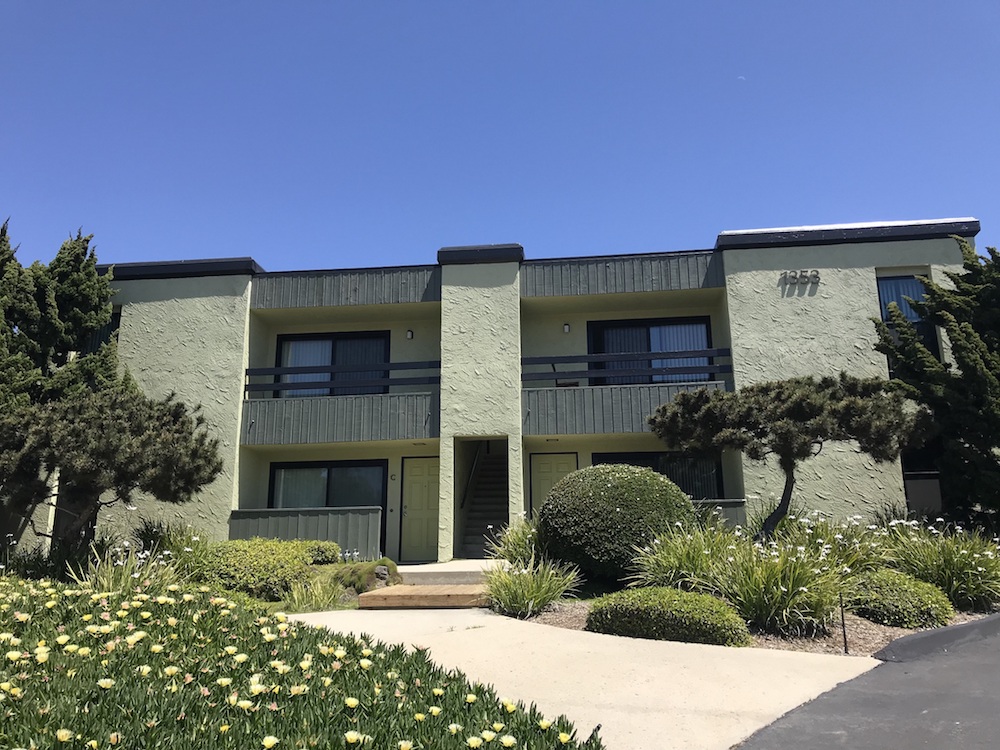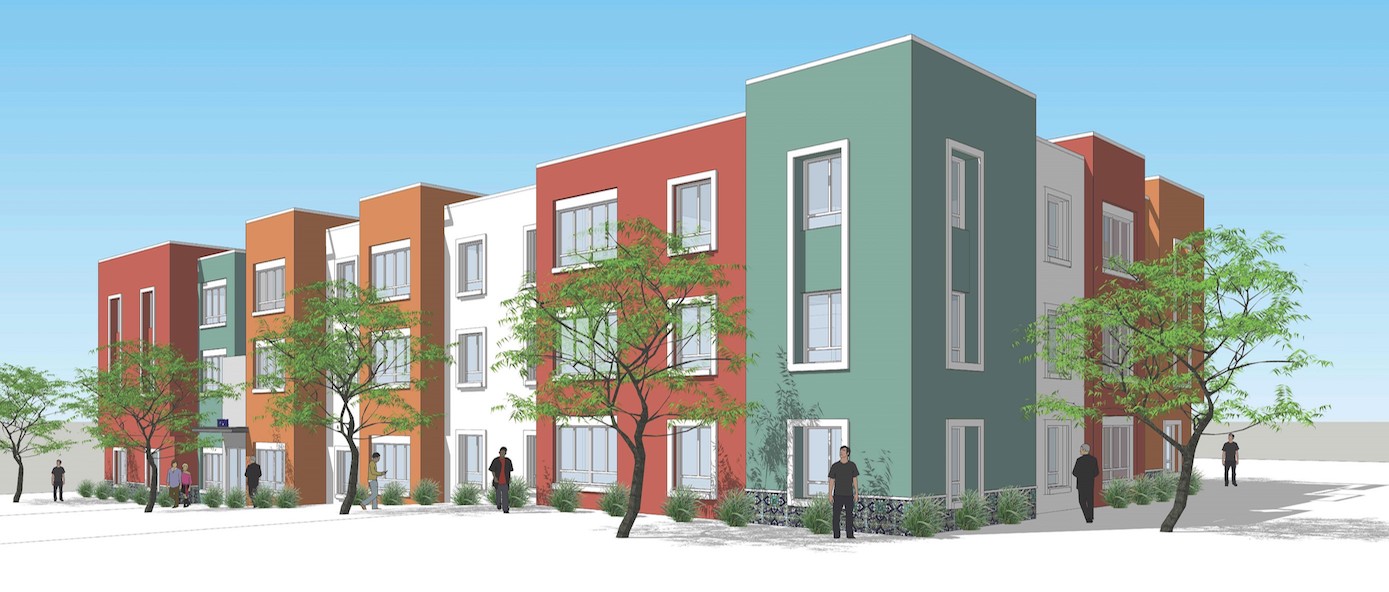Daily Business Report-Sept. 12, 2018
Californians have a strong and somewhat contradictory affinity for Prop. 13
Californians still really like Prop. 13 —
except for the big parts they don’t like
By Matt Levin | CALmatters
California looks a lot different than it did a generation ago. Its residents are far more diverse, and they live in a far more expensive state. There’s way more renters and proportionately way fewer Republicans.
Yet today’s Californians have at least one thing in common with their late 1970s forebears: They still really like Proposition 13.
In 1978 California voters approved Prop. 13 with a whopping 65 percent of the vote. A populist backlash to soaring property values and their attendant taxes, the ballot measure placed stringent caps on how much local governments could charge homeowners and businesses for the land they own. Overnight, Californians enjoyed some of the lowest property taxes in the country.
Since then, Prop. 13 has been blamed for everything from the poor performance of California public schools to a shortage of affordable homes to the perpetuation of racial inequality. In progressive quarters, the initiative has become a poster child for bad ballot-box policy.
But this year, when the nonpartisan Public Policy Institute of California surveyed voters about Prop. 13, 65 percent said it had been mostly a good thing. Yes, the exact same proportion that voted for the measure 40 years ago.
That’s a pretty stunning approval rating. By comparison, Gov. Jerry Brown—one of the most popular California political figures in recent memory—has never seen his job approval breach 60 percent over the past eight years. In 2016, Hillary Clinton beat Donald Trump here by a margin not seen since the days of Franklin Roosevelt, although she got less than 65 percent of the vote.
Such enduring popularity has led officials to long regard Prop. 13 as the untouchable third rail of California politics—yet voters may have a chance to repeatedly touch it in the not-too-distant future. A major proposed crimp in its tax-cutting power is likely headed for the 2020 ballot, and voters will decide on a possible expansion of Prop. 13 benefits this fall. With those battles on the horizon, here’s a breakdown of just how broadly, deeply and consistently Californians love their cheap property taxes.
Prop. 13 features many controversial components, but the part that hits taxpayers’ pocketbooks directly is arguably the most important. Prop. 13 caps a homeowner’s property tax bill at 1 percent of its market value when the new home is bought, and then indexes that value to inflation. In other words, if you bought your home in 1998, in real terms you’re still essentially being taxed on the price you paid back then—not on what it’s worth 20 years later, which is likely a lot more.
Given that the benefits of Prop. 13 are bigger in a hotter housing market—the more your house is worth, the more Prop. 13 saves you on your property tax bill—you might expect a strong relationship between housing prices and Prop. 13’s approval rating.
You’d be wrong.
Since the institute began polling on Prop. 13 in the early 2000s, the initiative’s approval rating has consistently hovered around the high 50s. That’s true through housing booms and busts.
When California’s housing market was cratering in 2008, 59 percent of those polled thought Prop. 13 had worked well for California. Ten years later, with home prices in many parts of the state at all-time highs, 56 percent of those polled thought Prop. 13 had worked out well. (These marks are for all Californians. Likely voters give Prop. 13 that approval rating of 65 percent).
Support for Prop. 13 is unsurprisingly strongest among those voting blocs you associate with wanting lower taxes—older, whiter, more conservative homeowners. More than 70 percent of Republicans said Prop. 13 was working out well, as did 70 percent of homeowners.
But the landmark initiative enjoys widespread support among pretty much every other major partisan and demographic group. A clear majority of Democrats, independents, self-identified liberals, younger voters, and those with household income below $40,000 give Prop. 13 good marks. Perhaps most shockingly, 57 percent of renters support Prop. 13.
Those who wish to revise Prop. 13 can find a bright spot in the relatively high percentage of Californians who may not know much about the initiative or its consequences. Nearly one in five Californians surveyed couldn’t say whether Prop. 13 has been good or bad for the state.
In the years following the passage of the Affordable Care Act (aka Obamacare) in 2010, national polls revealed a consistent contradiction. While most polls found a majority of respondents saying they didn’t like the law writ large, the same polls saw fairly high approval ratings for most of the Affordable Care Act’s specific provisions—keeping adult children on family health plans, for example, or prohibiting price discrimination against people with pre-existing health conditions.
Polling on Prop. 13 has suggested a similar disconnect between how Californians feel about the initiative overall and how they feel about individual components.
____________________

Encinitas apartment buildings
sold for $10 million to investor
private investor has acquired a pair of multifamily properties totaling 24 units in Encinitas for $10 million. Located within walking distance of one another, the properties consist of two identical two-story apartment structures located at 1237 and 1353 N. Vulcan Ave.
The seller, the Joseph Family Trust, had owned and managed the properties since initially developing them in the 1970s. They eventually decided to sell them now as part of a 1031 Exchange in order to retire from management and keep a steady source of income.
Cushman & Wakefield’s San Diego office represented the seller in the transaction.
____________________
Kaiser Permanente finalizes agreement
to enable carbon neutrality in 2020
Kaiser Permanente, the nation’s largest nonprofit integrated health care system, has finalized an agreement for a major renewable energy purchase that will enable it to achieve its goal of being carbon neutral in 2020. With this announcement, Kaiser Permanente, the leading health care sponsor of the Global Climate Action Summit in San Francisco, is realizing its commitment to improving the health of individuals and communities by addressing climate change.
Kaiser Permanente’s power purchase agreement for 180 MW of clean energy — enough to power 27 of its 39 hospitals — will enable the construction of utility-scale solar and wind farms, and one of the country’s largest battery-energy storage systems. The agreement is part of a comprehensive portfolio of renewable energy solutions and greenhouse gas reduction strategies that together are supporting Kaiser Permanente’s clean energy future.
____________________
Jeffrey Martin named
chairman of Sempra Energy

Jeffrey Martin, CEO of Sempra Energy, has been named chairman of the company, effective Dec. 1. Martin will succeed Debra Reed, who will be retiring on that date.
Martin, 56, has served as Sempra Energy’s CEO since May.
In his 13 years with the Sempra Energy family of companies, Martin has held a variety of increasingly responsible leadership positions. Prior to becoming Sempra Energy’s CEO in May, he was executive vice president and chief financial officer. Previously, from 2014 through 2016, Martin was CEO of San Diego Gas & Electric. From 2010 through 2013, Martin was president and CEO of Sempra U.S. Gas & Power and Sempra Generation, the predecessor companies of Sempra Energy’s renewable energy and midstream businesses. Prior to that, he was vice president of investor relations for Sempra Energy. He first joined Sempra Energy in 2004 as a principal working in Sempra Energy’s mergers and acquisitions group.
____________________
4.2 billion robocalls in
August set all-time record
The U.S. public has been worn down by the stunning growth of the nation’s robocalling problem over the past year, culminating in a new monthly record of 4.2 billion robocalls received nationwide in August, the highest number of robocalls ever recorded in a single month since the YouMail Robocall Index launched in 2015.
The volume equals some 136.2 million calls placed every day during August, or 1,576 robocalls for every second of the month.
In the first eight months of this year, robocalls were up 33.2 percent to 28.5 billion total calls, compared to 21.4 billion in the first eight months of 2017. That steady increase has been due mainly to more Americans who have avoided answering their phones, causing the dialers to place still more calls in their efforts to get through.
These latest monthly figures come from YouMail, a free robocall blocking solution for mobile phones. YouMail uses its patented smart blocking technology to block unwanted robocallers by making sure the user’s phone doesn’t ring, and then plays an out-of-service message that leads them to think they dialed an invalid number. YouMail identifies problematic numbers and robocalls using a combination of its recently patented audio fingerprinting technology, call patterns, and consumer feedback.
____________________
Speakers announced for 2018
Trigild Lender Conference


The 18th Annual Trigild Fall Lender Conference — the industry’s longest running commercial real estate debt conference — is set for Oct. 17 to19 at the Hard Rock Hotel in San Diego and will feature a lineup of keynote speakers, including futurist Peter Leyden of Reinvent; noted economist Sam Chandan; Ten-X’s Peter Muoio, and Clarion Partners’ Donald D. Sheets.
Muoio, executive vice president of Ten-X,will discuss “Economic Cycle and Commercial Real Estate Cycle, Inexorably Connected or on Divergent Paths?” – examining the outlook for both the economic and commercial real estate cycles.
Chandan, known for his erudite commentary on monetary and fiscal policy issues as well as keen knowledge of capital and credit markets, will address “The State of Commercial Real Estate.”
Attendees can register or learn more about the event by visiting www.trigild.com and clicking on the Fall Lender Conference box.
____________________
Port of San Diego nearly sweeps
2018 Environmental awards
The Port of San Diego has received international recognition for its efforts in the safekeeping and environmental care of San Diego Bay and the surrounding waterfront. The American Association of Port Authorities (AAPA) has announced that the Port submitted the winning entry in three of the four categories in its 2018 Environmental Improvement Awards program – Stakeholder Education, Awareness and Involvement; Environmental Enhancement; and Mitigation.
____________________

Chelsea breaks ground on new affordable
housing for low-income families
Construction is underway on Paseo La Paz, a 137-unit affordable apartment complex for low-income families across the street from a Blue Line Trolley Station in San Ysidro. Chelsea Investment Corp., the San Diego Housing Commission and Casa Familiar are partnering on the $43.2 million project, which is scheduled to open in late fall 2019.
Six three-story buildings are comprised of 24 one-bedroom apartments, offering 586 square feet, and 79 two-bedroom units, offering 785-808 square feet. Thirty-six three-bedroom units are available, with 1,037 square feet.
Paseo La Paz is located on formerly under-developed property at 160 W. Seaward Ave. near schools, a public park, a community center, and across the street from the Beyer Street Trolley Station.
Apartments at Paseo La Paz are restricted to families with income up to 60 percent of the area median income, currently at $58,380 per year for a family of four. For a one-bedroom apartment, rents are anticipated to range from approximately $856 per month, $1,020 per month for a two-bedroom unit and $1,117 per month for a three-bedroom unit.
Paseo La Paz will provide a range of comprehensive support services at no cost to its residents thanks to the affiliation with Casa Familiar, including adult education, financial literacy and English as a second language. Programs for children include after-school tutoring, art classes and fitness programs.
Project architect is Joseph Wong Design Associates, with Emmerson Construction serving as general contractor.




